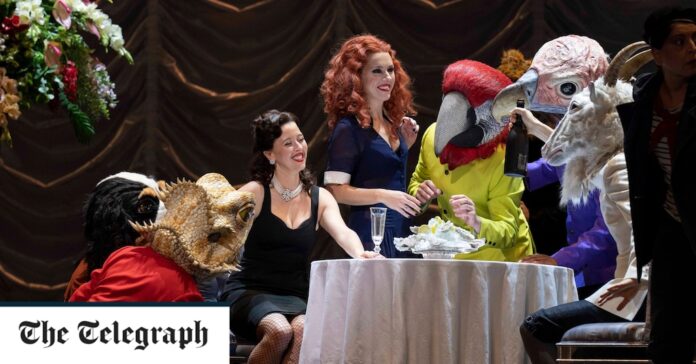Handel’s magical tale has been given a lively makeover, while Malakai M Bayoh enraptured the entire audience (with just one sour exception)
The evil spirit of Handel’s enchantress Alcina evidently infected one audience member at Tuesday’s premiere of this new production. The young Malakai M Bayoh, making his debut in the role of the boy Oberto, was shamefully heckled in the middle of an aria that he was singing skilfully and exuberantly. The protester was shushed by those around, and then left (Covent Garden has since issued a statement saying he now is banned for life) while Bayoh received a huge ovation.
Nothing on stage was as reprehensible as this passing incident, and there was plenty of harmless fun. In Handel’s magic (and magical) opera, the anti-heroine lures lovers to her remote island, and turns them into wild beasts while she pursues her latest conquest. Eventually stripped of her power, the defeated Alcina turns the animals back into humans and all is well.
Such a simple scenario was likely to be reimagined by a director of Richard Jones’s flair and a designer of Antony McDonald’s fertile invention. Here, we have instead a peaceable kingdom of cuddly, furry animals that might have been conjured up by Tamino’s magic flute, set in a country garden complete with fertile greenhouse and moving trees. Alcina’s urn containing her magic powers is a huge perfume bottle, one puff of which is able to transform men into a variety of creatures – this Alcina is a sexy brand.
The tone is skittish, and there is ravishing singing to match: the red-headed sister of Alcina, Morgana (Mary Bevan) erupts into her virtuosic act one finale aria “Tornami a vagheggiar” with the animals dancing around her, while Emily D’Angelo as Alcina’s lover Ruggiero is a peerless Handel stylist, especially in her big act three showpiece “Sta nell’ircana”, complete with Sarah Fahie’s choreography of threatening gardening tools. (Sadly, the Act II dances Handel imported from his Ariodante are cut.)


